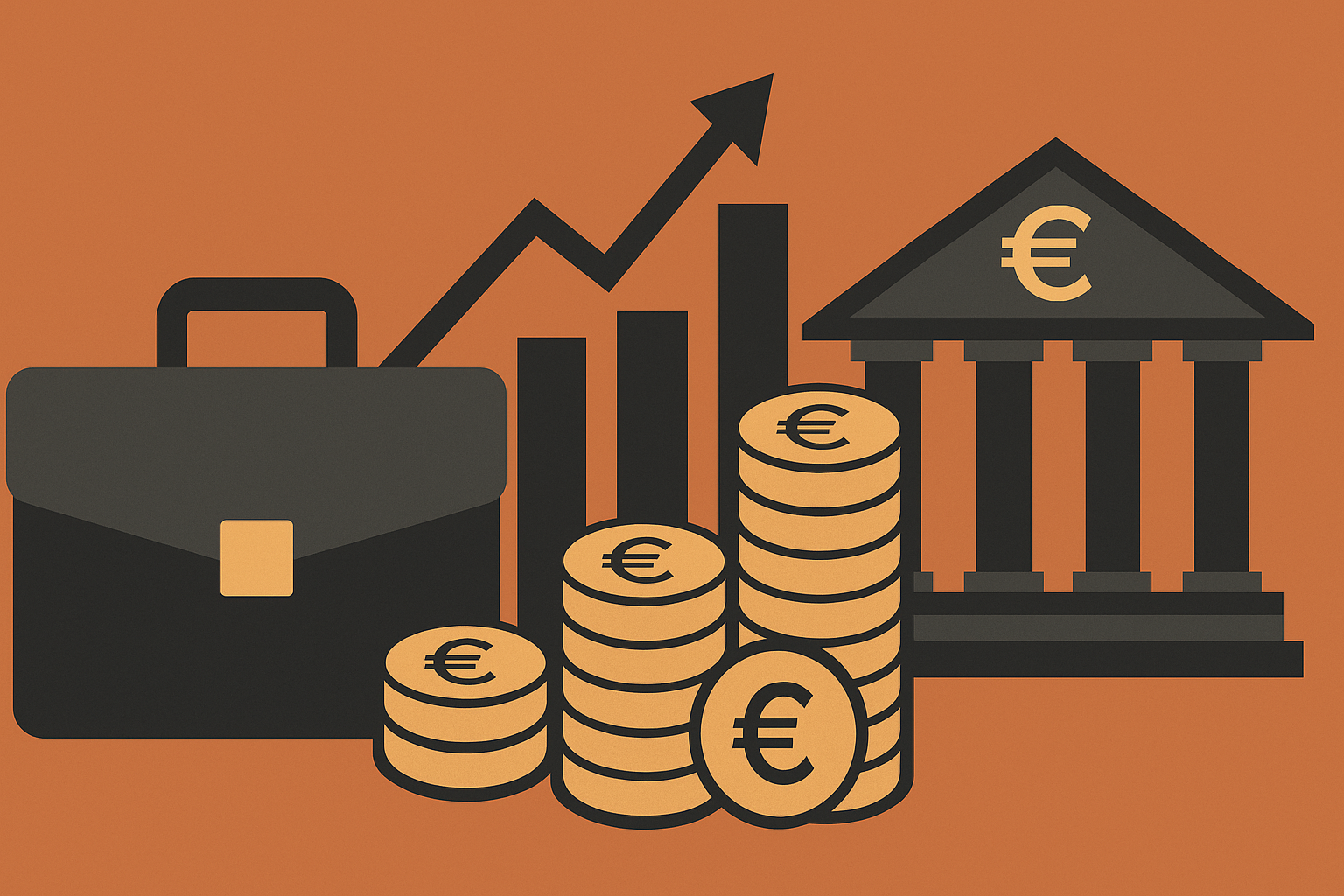Germany’s retail banking sector is making a major push into private equity, targeting small-scale investors in an effort to tap one of the largest pools of untapped wealth in Europe. Leading institutions — including Deutsche Bank, Trade Republic, and BlackRock — are introducing new products that give individual investors access to an asset class traditionally reserved for institutions and the ultra-wealthy.
Expanding Private Equity Access
The move comes as private capital firms face a slowdown in institutional commitments, with pension funds and endowments holding off on new investments until existing funds return cash. “German retail investors represent one of the world’s largest untapped pools of wealth, and private equity firms are eager to gain access,” said Claudio de Sanctis, head of retail banking at Deutsche Bank.
Last month, Deutsche Bank launched a private markets product in partnership with Switzerland’s Partners Group, requiring a minimum investment of €10,000 and at least €200,000 in total assets held at the bank. Meanwhile, fintech platform Trade Republic partnered with EQT and Apollo Global Management to offer retail investors entry to private equity exposure for as little as €1 — a groundbreaking low barrier in the industry.
In parallel, BlackRock has joined forces with UniCredit’s German arm HVB and online broker Scalable Capital, providing retail clients access to private equity investments starting at €10,000.
From Skepticism to Opportunity
Germany’s embrace of private equity represents a notable shift in sentiment. Once criticized by politicians — with former SPD chair Franz Müntefering famously labeling buyout funds “swarms of locusts” in 2004 — the sector is now being redefined as a key growth opportunity.
Chancellor Friedrich Merz, who previously sat on the board of BlackRock Germany, has overseen an increasingly open stance toward private investment. With German households holding €9 trillion in financial assets — roughly one-third of it in low-yield deposits — the market offers enormous potential for asset diversification, according to Bundesbank data.
“This is a huge growth theme,” said Christian Hecker, co-founder of Trade Republic. “Germans may be skeptical of stock markets, but they trust their private companies — and this lets them take part in that story.”
A Gradual Shift in Investor Culture
Despite growing interest, private equity participation among German investors still trails far behind the US and UK. Steffen Pauls, CEO of Berlin-based platform Moonfare, noted that “Germany is about 10 years behind in investor understanding of private equity.”
However, the landscape is evolving. Data from Bundesbank shows that the number of securities accounts has surged by nearly 50% in the past decade, adding around 12 million new accounts since 2015. Much of this growth is attributed to digital trading platforms and EU regulatory reforms, which have enabled more flexible investment structures like semi-liquid listed funds (Eltifs).
Challenges and Caution
Despite the enthusiasm from banks and asset managers, German investors remain cautious. Memories of the 2008 financial crisis, when many open-ended real estate funds froze withdrawals and imposed steep discounts, continue to shape investor attitudes.
“There’s a boom from the supply side, but not from the demand side,” said Ali Masarwah, CEO of wealth adviser Envestor, noting that inflows to private equity remain modest compared to exchange-traded funds (ETFs).
Some firms have already faced setbacks. Moonfare recently wound down a closed-end private equity product due to weak demand, acknowledging that the concept may have been “ahead of its time.”
Industry leaders warn that expectations must be managed. Steffen Meister, chair of Partners Group, cautioned that funds promising 20% returns with high liquidity often rely on leverage and elevated fees — factors that could lead many products to “disappear within a decade” when they fail to meet investor expectations.
A New Investment Frontier
Despite these challenges, most experts agree that private equity’s integration into retail investing is inevitable. De Sanctis of Deutsche Bank stressed the importance of investor education:
“It’s vital that clients understand what they’re investing in. If we introduce this asset class responsibly, we’ll be doing a real service to our community.”
Attitudes in Germany are already shifting. “Compared to 10 or 20 years ago, perceptions have changed dramatically,” said Meister. “Private equity no longer carries the same negative reputation — it’s becoming part of the mainstream investment landscape.”
As banks and fintech platforms compete to democratize access, Germany’s cautious savers may soon find themselves at the heart of Europe’s next investment transformation.








